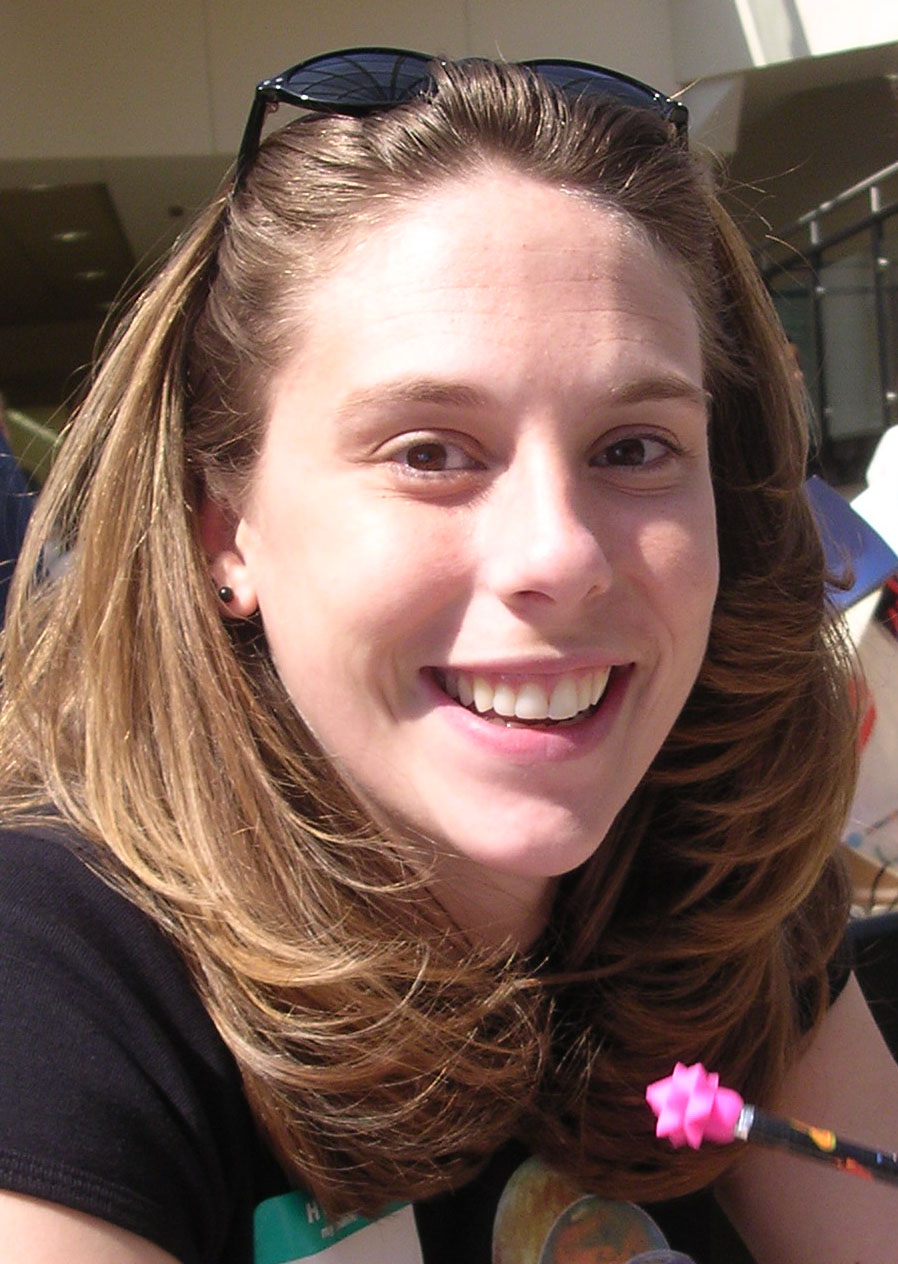The Team
Shannon Pelkey Sturtevant | Alumni Team Member

Where
did you grow up?
I grew up in Holliston, Massachusetts
How
did you get interested in space exploration?
I have always enjoyed science. I'm an inquisitive person by nature and a bit of a romantic, so I have been captivated by the stars for as long as I remember. However, there was one event that really set me to investigating outer space. It was when I was young and learned that a "shooting star" wasn't really a star at all, but debris from the solar system heating up upon entry into our atmosphere. Learning that something I thought I had completely understood was something so entirely different was unbelievably fascinating and intriguing to me. So it was then that I started to read more and more about space to find out what else I didn't know, and I'm still going!
What's
your educational background?
I got my Bachelor of Science degrees in Astronomy and Physics from the University of Massachusetts, Amherst and received my Masters of Science and Doctorate of Philosophy degrees in Astrophysics and Planetary Science from the University of Colorado, Boulder.
What
are your hobbies?
Although I don't play any instruments myself, I can't imagine a life without music! I've been hooked on snowboarding from the time I spent in Colorado, and there are few places on this planet that I wouldn't travel to. I enjoy documenting just about anything I do with pictures, and I also eagerly and attentively wait for the Boston Bruins to be "good" again.
What's
your job on CRISM?
In preparation for CRISM operations, I worked with a similar data set from the Mars Express OMEGA instrument to simulate CRISM multispectral mapping. This work allowed us to identify the best subset of CRISM wavelengths to acquire in the multispectral mode to capture mineralogic information. I have also led the development of data analysis tools and will be involved with understanding global mineralogic variations as well as attempting to unlock the secrets of particular mineral deposits that tell us about a very different time in Mars' past.
What
excites you about exploring Mars?
I would have to say that the thing that excites me the most about exploring Mars is that exploring Mars excites other people! It's because of that broader interest that there are so many past, current, and future missions planned to Mars. And because of the success of these missions, there is a wealth of data from the planet that really allows us, as scientists, to have the means to get at the answers to the questions we have about the planet. So in a field where there is much theory, I never fail to appreciate the fact that I get to work with hard data.
What
advice would you give to someone like you who wants to get involved in
space exploration?
If you have the interest and drive to get involved, there is no reason not to! The community of space exploration is relatively small, but filled with opportunities, which is a perfect combination. It is a welcoming and supportive community so once you start investigating the opportunities, it doesn't take long before you can be involved in something incredibly interesting and exciting.
